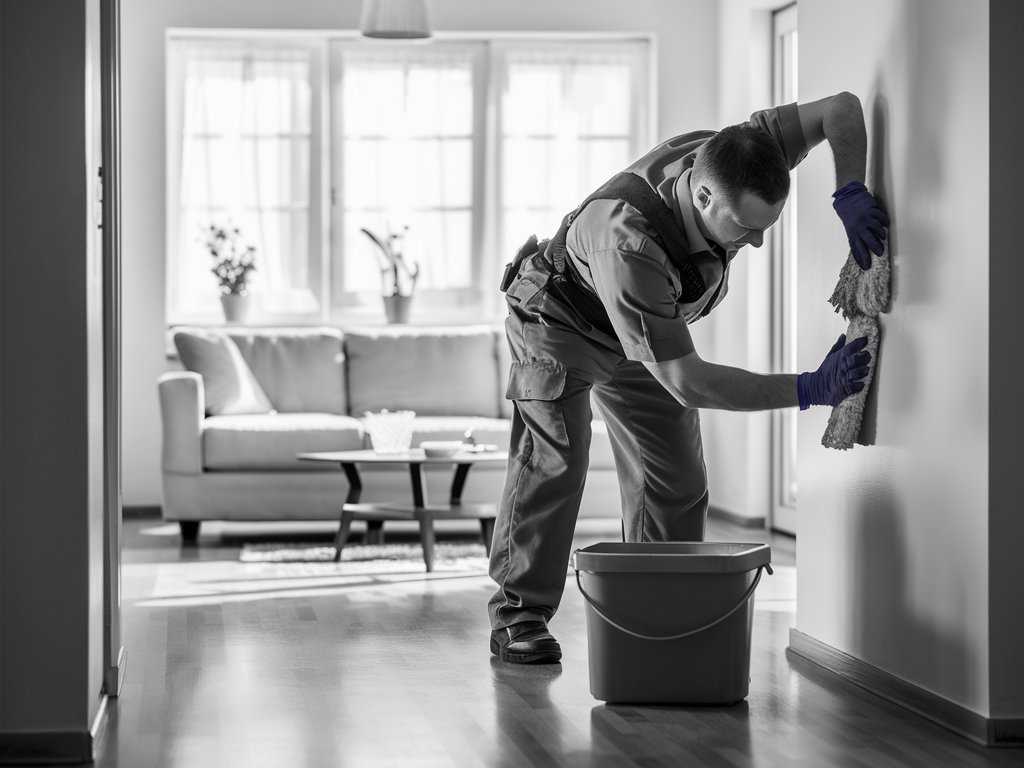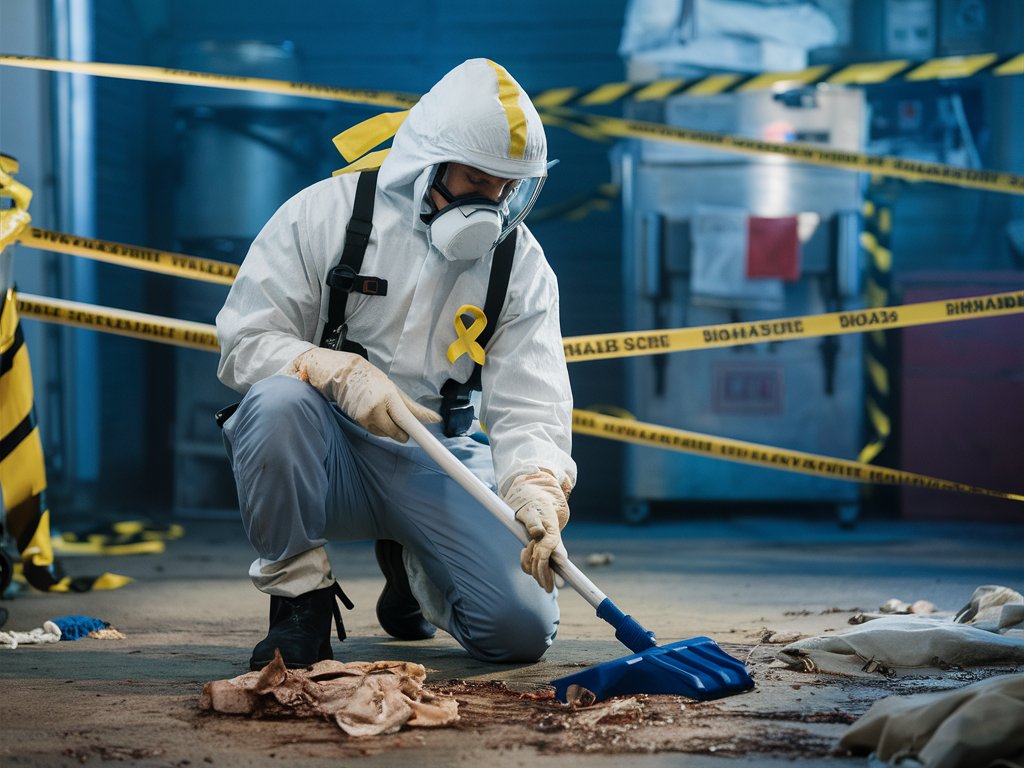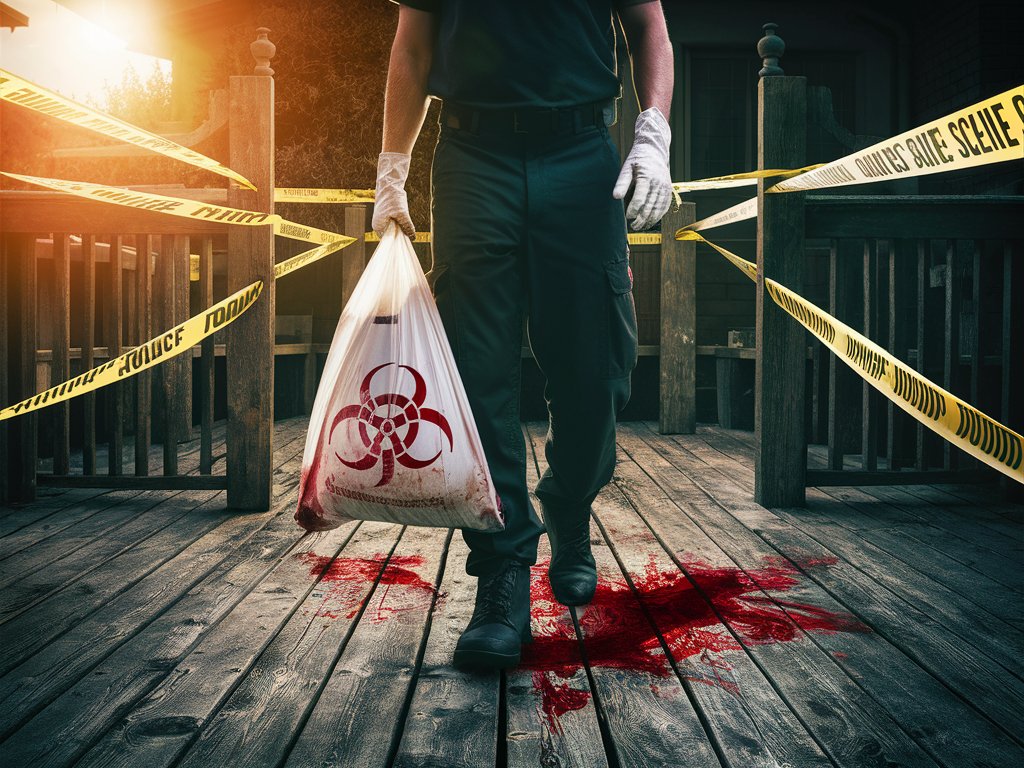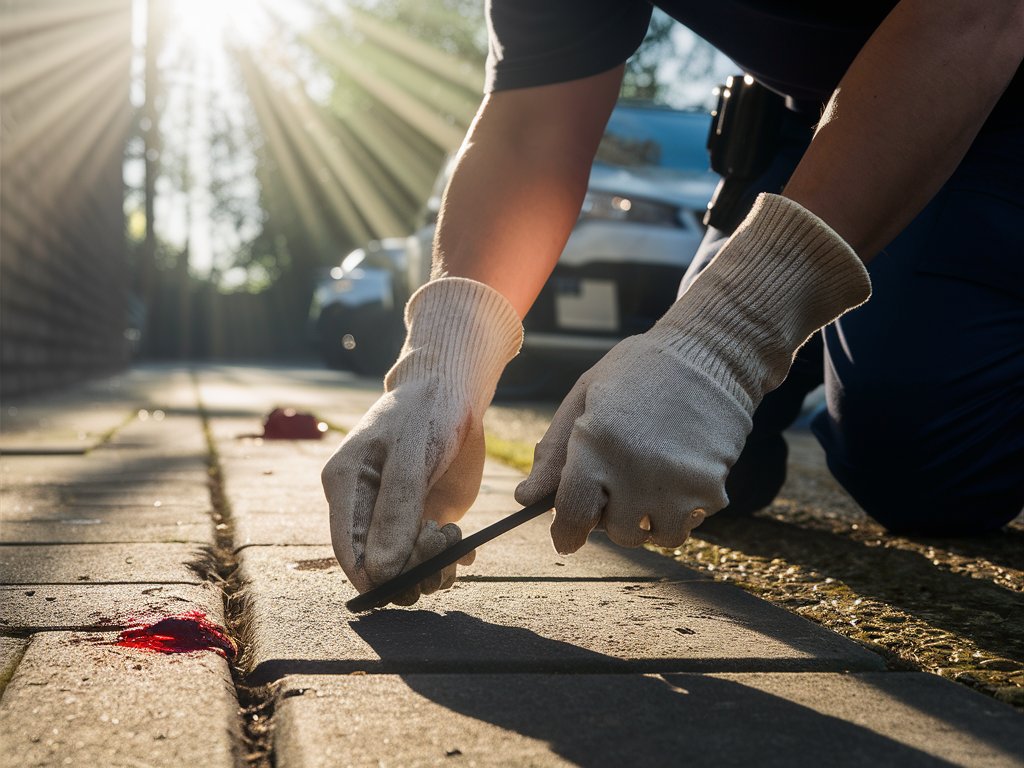The Importance of Post-Mortem Cleaning Services for Families
When someone passes away, the space left behind often carries physical reminders of their final moments. Post-mortem cleaning services help families by restoring these spaces, ensuring they’re safe and clean.
One of my first jobs involved cleaning the home of an elderly woman who had passed away unexpectedly. Her family was overwhelmed with grief and unsure where to start. Stepping in to handle the cleanup allowed them to focus on healing.
Families need this kind of support to move forward. The burden of dealing with biohazards or personal belongings can feel too heavy during such emotional times.
What Post-Mortem Cleaning Services Involve
1. Biohazard Removal:
Post-mortem cleaning often involves removing biohazard materials like blood, bodily fluids, and other contaminants.
2. Decontamination and Sanitation:
Professionals sanitise every surface to eliminate harmful pathogens. They use specialised chemicals and techniques to ensure safety.
3. Odour Control and Restoration:
Lingering odours are a common challenge. Advanced equipment like ozone generators or air scrubbers neutralise these smells, leaving the space fresh.
I remember working on a job where odour was the biggest issue. A neighbour had been deceased for weeks before being discovered. The process was challenging, but the transformation was remarkable.
Steps Taken in Post-Mortem Cleaning Services
Cleaning after a loved one’s passing is not just about scrubbing surfaces. It’s a meticulous, multi-step process.
Assessment and Planning:
Professionals first assess the property to identify biohazards and determine the scope of work.
Handling Personal Belongings:
Personal items are treated with respect. Salvageable belongings are cleaned, while others are disposed of according to the family’s wishes.
Thorough Cleaning and Disinfection:
The actual cleaning involves removing contaminants, deep cleaning, and disinfecting every corner to restore the space completely.
Tools and Techniques Used
Post-mortem cleaners rely on advanced tools to do their work effectively.
1. Personal Protective Equipment (PPE):
Cleaners wear full-body suits, gloves, and masks to protect themselves from exposure to hazardous materials.
2. Specialised Cleaning Agents:
These agents neutralise pathogens and ensure thorough sanitation.
3. Odour Neutralisers:
Air scrubbers, ozone machines, and enzyme-based cleaners tackle stubborn smells that linger after death.
I recall working in a small, unventilated apartment where odour control equipment made all the difference.
Emotional and Psychological Challenges of the Job
Cleaning up after someone’s death is not just physically demanding; it’s emotionally taxing.
For cleaners, walking into a scene where someone spent their final moments is sobering. We’re often in contact with grieving families, and empathy is crucial.
One family once told me, “You’ve given us back our home.” Moments like this make the emotional strain of the job worthwhile.
Experiences from the Field
Each post-mortem cleaning job is unique, but they all share a common thread: they involve compassion and professionalism.
I remember working on a property where a father had passed away in his home office. His family was overwhelmed with sorrow but wanted to keep the space intact as a memory of him. Carefully cleaning and restoring that room was one of the most delicate tasks I’ve handled.
Such experiences remind me that this job is about more than cleaning—it’s about helping people in their grief.
Why Professional Services Are Essential
Post-mortem cleaning is not a job for the untrained. Biohazards pose serious risks if not handled properly.
I’ve seen cases where families attempted DIY cleaning, only to realise the emotional and physical toll was too great. Professional cleaners have the tools, training, and emotional resilience needed to manage these tasks safely and efficiently.
By hiring professional services, families can focus on healing, knowing their loved one’s space is in capable hands.
Post-mortem cleaning services provide vital support to families during their most vulnerable moments. From removing biohazards to restoring spaces, these professionals handle the hardest tasks with care, respect, and expertise. Through my own experiences, I hope to highlight the value of this work and its role in helping families move forward.





